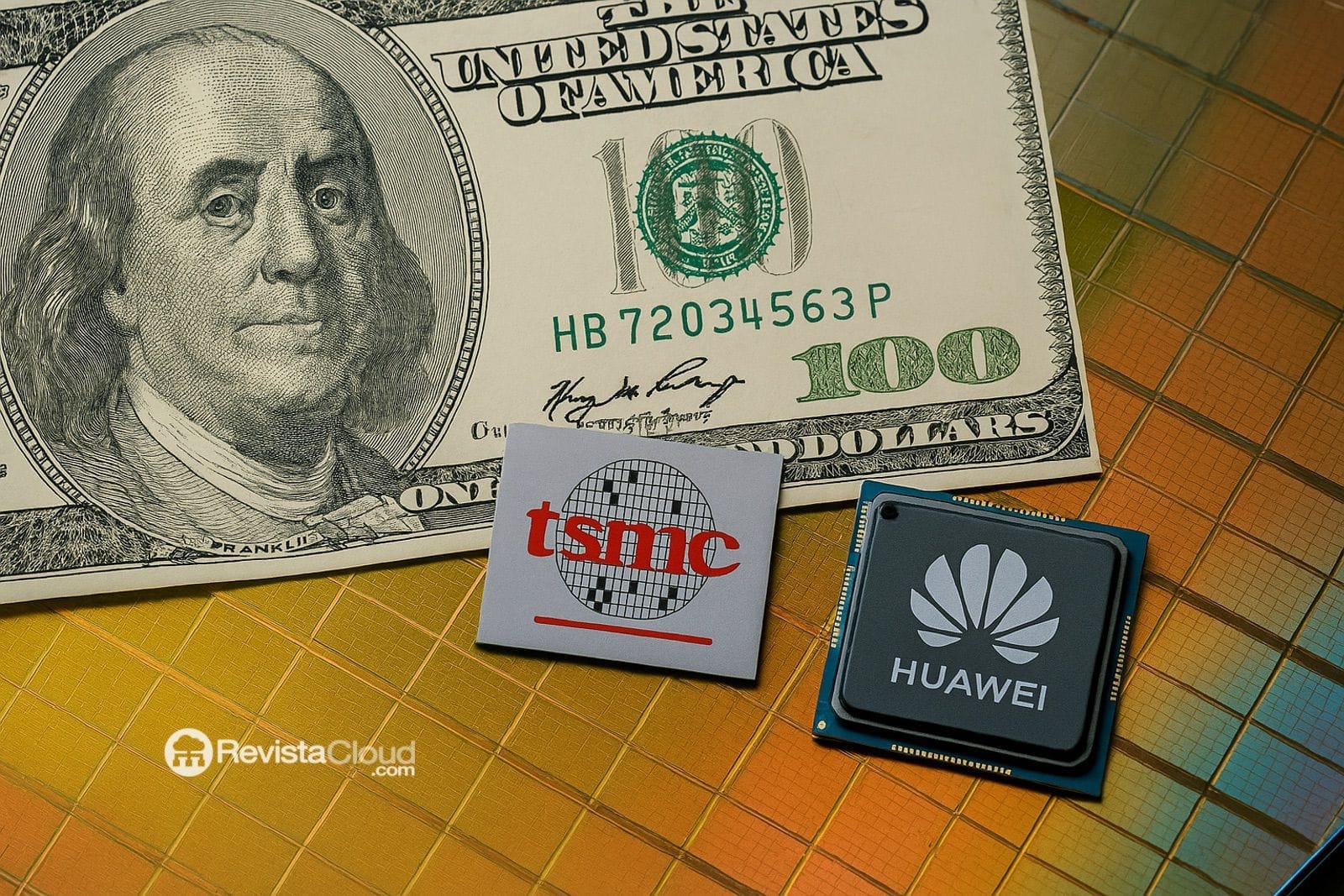The historic sanction marks a new chapter in the technological war between Washington and Beijing, placing Taiwan’s TSMC at the center of the conflict.
The United States has announced an unprecedented fine of over $1 billion against TSMC, the world’s largest chip manufacturer, for allegedly selling advanced semiconductors to Huawei—the Chinese tech giant banned by Washington—through a network of shell companies. This case, already termed historic for its implications, intensifies the battle for control over global technological supply.
The sanction, issued by the U.S. Department of Commerce, is based on legislation that allows for punishing with double the value of any unauthorized transaction if it violates the export controls imposed by the U.S. According to sources close to the process, the chips sold would have a value of around $500 million, justifying the amount of the final sanction.
Huawei circumvented controls with shell companies
The heart of the scandal lies in how Huawei—which has been on the U.S. government’s blacklist since 2019—allegedly evaded restrictions through third parties. Purchases were channeled through companies like Sophgo, which were supposedly independent but were actually acting as intermediaries for Huawei.
These firms indicated that the chips would be used for cryptocurrency mining hardware, specifically for Bitmain. However, the reality was quite different: the semiconductors ended up being integrated into Huawei’s Ascend 910 GPUs, designed to perform high-performance artificial intelligence tasks, a particularly sensitive area for the Biden administration and previously for Trump.
To what extent is a manufacturer responsible?
This case opens a delicate debate in the industry: Can a manufacturer like TSMC know what its chips will be used for once sold?
While TSMC claims it reviewed the design of the ordered chip, it could not anticipate its final integration into systems associated with Huawei. The company indicates that it is strengthening its verification protocols and has begun to suspend relationships with suspicious customers, as it recently did with PowerAIR.
“We are facing a case where the sophistication of the deception surpasses the usual control mechanisms,” say legal experts consulted. “But that does not exempt from responsibility if it is proven that there was negligence or lack of due diligence.”
Trump escalates the confrontation with China… and its allies
The measure coincides with the return of Donald Trump as a key figure in foreign policy, in a context where the technological rivalry with China is intensifying. The paradox of the situation is that TSMC is investing more than $165 billion in the United States to bolster domestic chip manufacturing, aligning with the so-called CHIPS Act championed by the Trump administration itself.
Still, the pressure does not relent. The White House is considering new restrictions that could prohibit TSMC from selling chips to certain nations or foreign companies, in an attempt to cut off any potential technological leakage to China at its root.
China won’t be stopped
Despite the blow, analysts warn that China will continue to try to access critical technologies. “They will seek alternative routes, create more shell companies, or even pressure less visible manufacturers in the global market,” points out a researcher in technological geostrategy.
Moreover, there are fears that this measure could open the door to Chinese retaliation, with new barriers to American companies or similar sanctions. The confrontation is not over, and the TSMC–Huawei case could be the precedent that redefines the rules of global technological trade.

